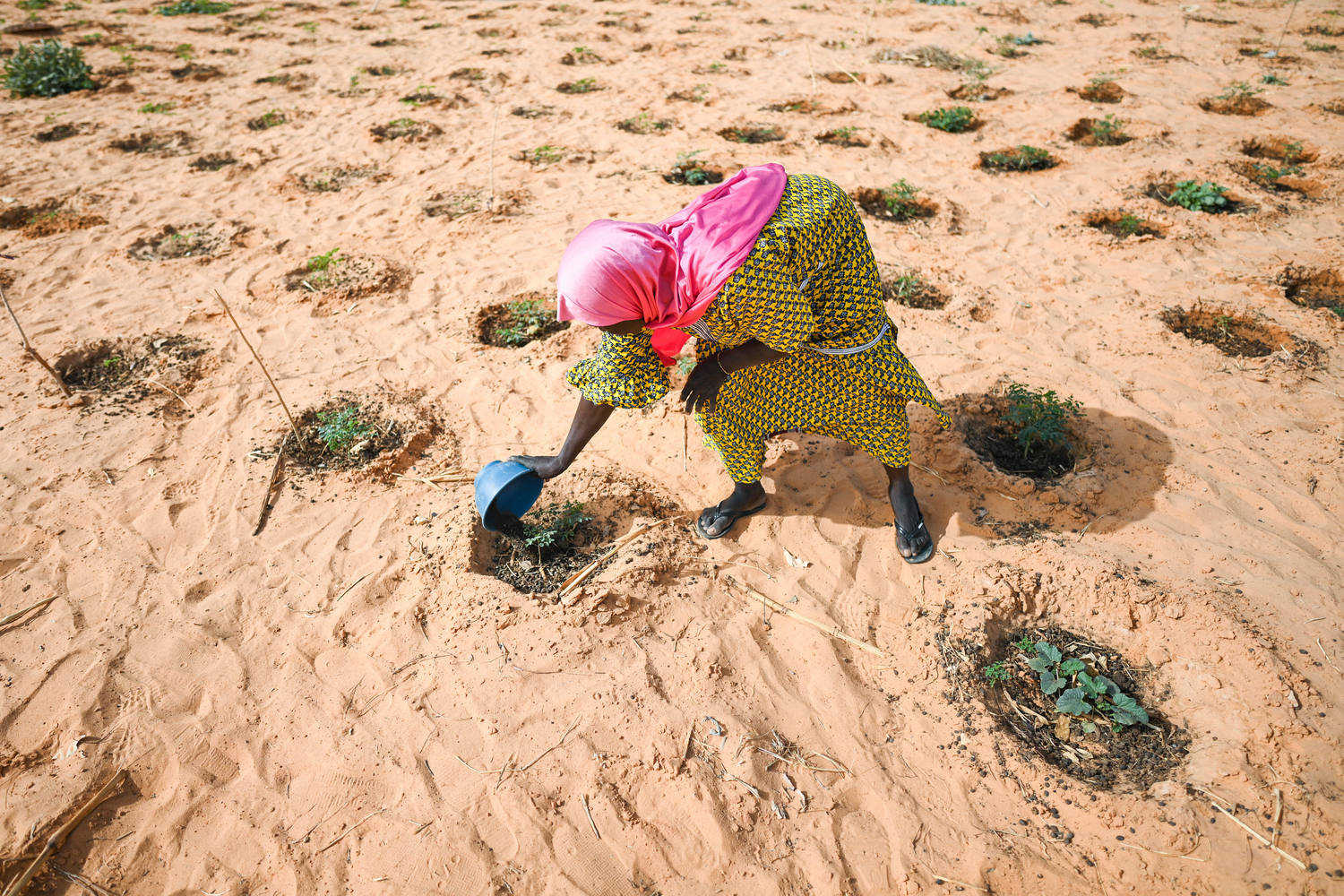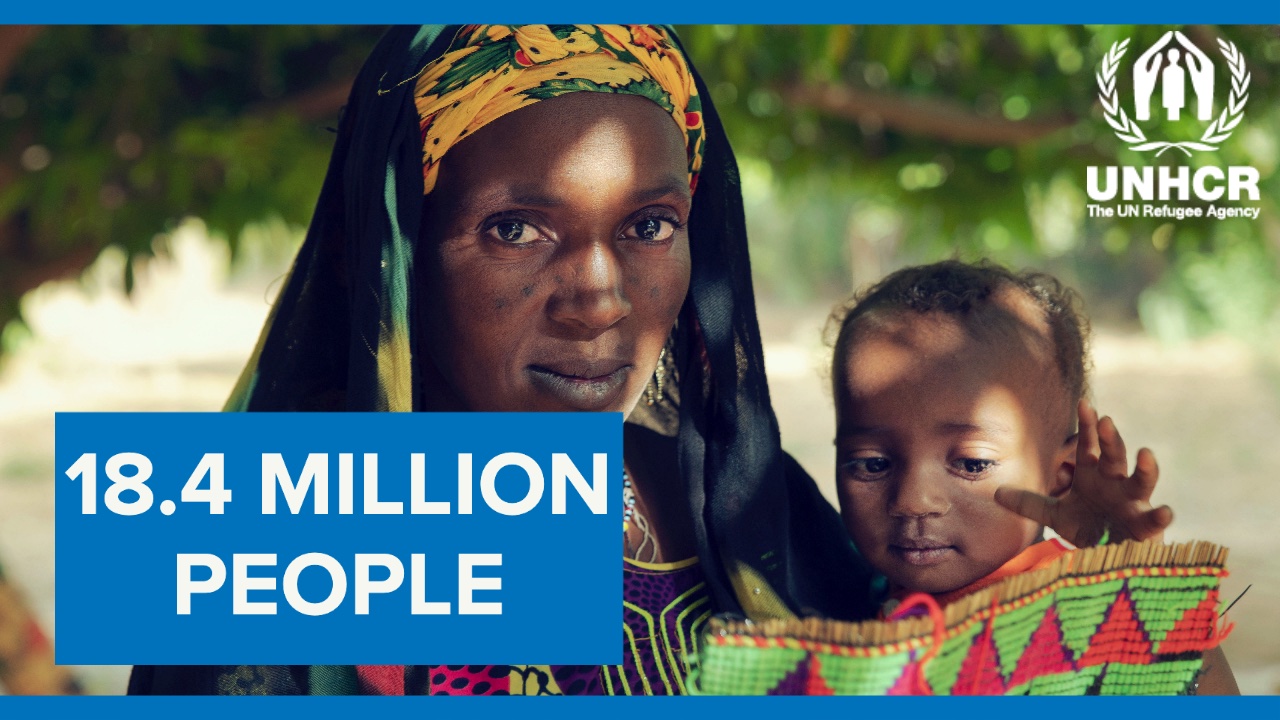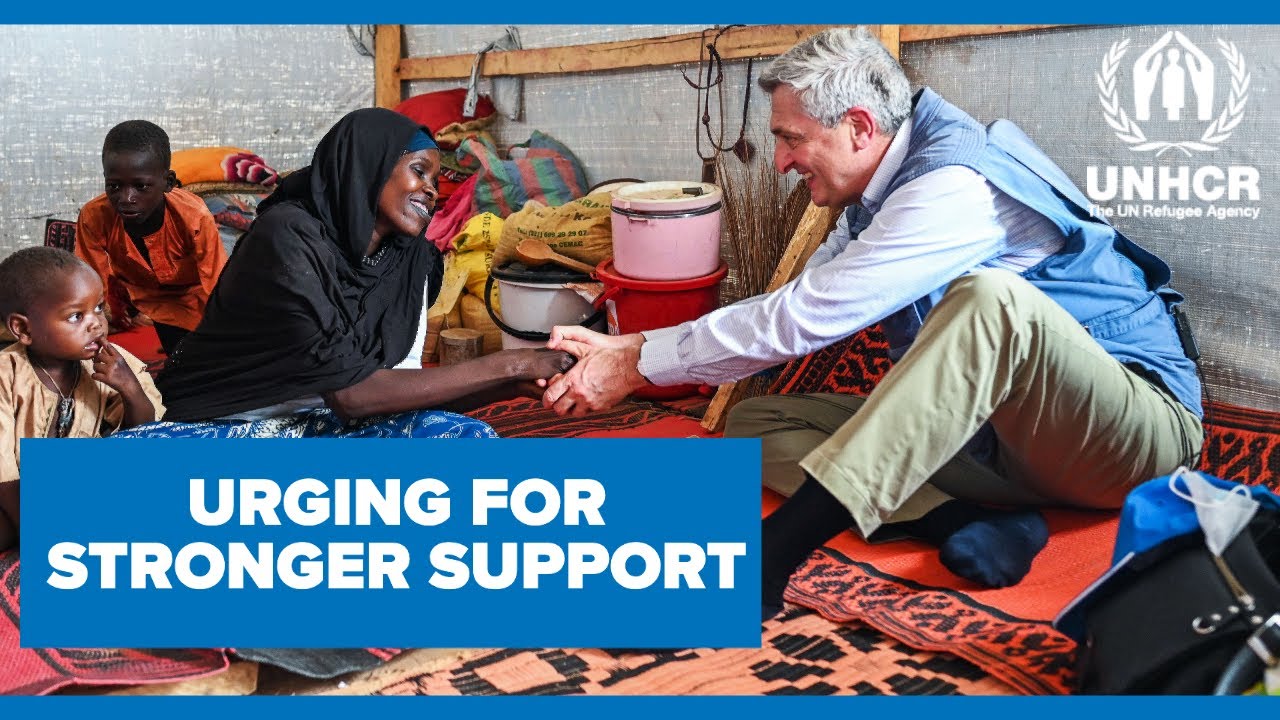World Water Day: New approach to safeguard Chad's scarce water resources
World Water Day: New approach to safeguard Chad's scarce water resources

FARCHANA CAMP, Chad, March 20 (UNHCR) - Queuing has become a daily part of Mariam Mouktar's life. She gets up early every morning and lines up with scores of other Sudanese refugees for her turn to fill her buckets at a standpipe.
Water is a scarce resource in the arid, semi-desert reaches of eastern Chad at the best of times, but when you are living cheek-by-jowl in a dusty refugee camp with almost 21,000 other people, it becomes a major issue.
"Having so little water is a real problem in the camp. Since I came here in 2004, we have never had enough. I have to cook with it, wash my three children, wash the clothes and my few goats are thirsty as well," Mariam explained. "You have to get up very early in the morning, to be among the first in the line, otherwise there's not enough water left."
But the UN refugee agency and Chad's Ministry of Water and Environment have just started implementing a more sustainable water strategy, in 12 UNHCR-run camps in the east, that will partially replace the high-technology, heavy maintenance systems presently in place.
The new three-year approach aims, through a combination of modern and traditional techniques, to safeguard Chad's rapidly dwindling water reserves and ensure that the 250,000 Sudanese refugees in the camps will be less dependent on sophisticated technology for the provision of this vital resource. Local communities will also benefit.
"In principle, there is enough water in Chad. But due to the overpopulation of the camps, we have extracted too much of it and too quickly," said Christian Guillot, who heads a seven-member team of UNHCR water and sanitation experts in the town of Abéché. "We're not in the emergency phase anymore, therefore we have to shift our approach and go back to more traditional systems, otherwise in a few years there will be no water left," he added.
During this first year of the plan, new wells will be dug in the 12 refugee camps and surrounding villages - the target is for 16 wells for livestock; 37 general wells with manual pumps; and 46 boreholes. At the same time, Guillot's team will search for underground water reserves with the help of French and Swiss experts.
Also this year, the refugee and local communities will be taught to use different water sources for different purposes: for drinking, for livestock, for cultivation and for construction work. As a next step, electrical water pumps will be replaced by traditional manual pumps, which are easier to operate and cheaper to maintain.
All wells will be naturally replenished each year during the rainy season, which lasts from July to September. "The quantity of water there is obviously less," said Guillot, "but by constructing several traditional wells in the wadis [dry river beds], we won't exhaust the groundwater reserves deep under the desert."
Guillot said that aside from easing the water supply situation, the project "also aims to ease tensions between the refugees and their host communities. And once the refugees return home to Darfur, we will have created lasting water sources for the Chadian population."
That will be good news for Miriam, who noted that in her village in Darfur, "We never had water problems because all our villages were much smaller and our population never exceeded a certain number." She'll still have to queue under a hot sun, but maybe for not so long each day.
People in some of the other camps have it worse. In Farchana, the 18 water outlet points provide up to 16 litres per person, per day against a minimum standard of 15-20 litres. In camps further north, around the more arid areas of Iriba or Bahai, each person gets just six to 10 litres a day.
By Annette Rehrl in Farchana Camp, Chad








